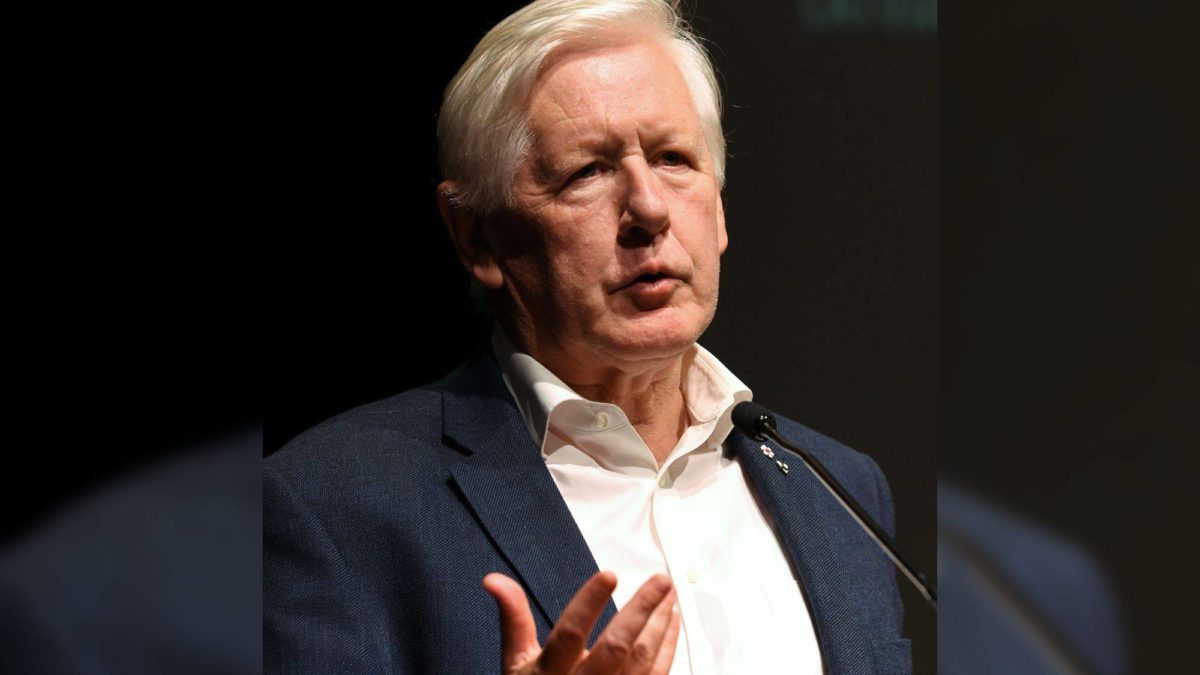Twenty years ago, in one of Canada’s greatest moments on the world stage, Prime Minister Jean Chretien announced that Canada would not join the US invasion of Iraq.
Chretien’s decision to keep Canada out of that foolhardy bloodbath showed a compassion and independence that was particularly impressive given the enormous pressure coming from Washington at the time in the wake of the September 11 terrorist attacks.
Now is a similarly fraught moment, in the wake of the horrific October 7 terrorist attack in which Hamas brutally killed 1,400 Israelis and took more than 200 hostages.
An enraged Israel has responded to the Hamas attack by relentlessly bombing Gaza for more than three weeks — with the full support of the United States.
This has created a humanitarian crisis of extraordinary proportions. More than two million Palestinian civilians — about half of them children — are trapped in Gaza. They had nothing to do with the Hamas attack. Yet, with nowhere to go to escape constant bombardment, more than 7,000 of them have been killed and there are severe shortages of food, water, medicine and the fuel needed to run hospital generators and incubators.
This humanitarian catastrophe, broadcast on live television, cries out for nations of conscience to demand a ceasefire so bombs stop raining down on children — some 3,000 of whom have already been killed in Gaza in the past few weeks.
In this dire crisis, there is a desperate need for Canada to speak up as a middle power of some standing in the world, for our prime minister to summon the same courage Chrétien showed in declining to join the Iraq invasion.
Canada used to be known for peacekeeping and for “punching above its weight” in world affairs. Yet Prime Minister Justin Trudeau has refused to call for a ceasefire in Gaza. And last Friday, Canada refused to join a majority of the world’s nations in passing a UN emergency resolution calling for “a sustained humanitarian truce leading to a cessation of hostilities.”
The resolution, sponsored by Jordan, condemned all violence against civilians, both Israeli and Palestinian. In an effort to win broad support, the Jordanian resolution avoided making political points and focused instead on the need for “immediate, full, sustained, safe and unhindered humanitarian access.”
Yet this call for a humanitarian truce was rejected by the US and Israel — along with 12 mostly small nations.
Canada could have shown some real independence from the US — and compassion — by supporting the Jordanian resolution.
Instead, Bob Rae, Canada’s UN ambassador, proposed an amendment that heavily denounced the Hamas attack while avoiding criticism of Israel’s bombing of Gaza.
This prompted Pakistan’s UN Ambassador Munir Akram to rebuke Rae, saying “my friend from Canada insists on naming the organization Hamas [but] does not feel the need for the equity and balance and fairness for which Canada is so well known, he does not feel the need to name Israel for killing 7,000 Palestinians.”
The Pakistan ambassador’s remarks were greeted with loud applause and Rae’s amendment was defeated. The UN assembly went on to pass Jordan’s resolution with an overwhelming majority of 120 nations, including France, Belgium, Ireland, Norway, Spain and Switzerland.
Notably, Canada abstained. We failed to add our voice to a worldwide plea on behalf of humanity.
Rae is a skilled diplomat and he demonstrated real compassion in 2018 as Canada’s special envoy to Myanmar with his persistent efforts to stop ethnic violence against Myanmar’s minority Rohingya. The Trudeau government backed Rae by providing $300 million for the Rohingya.
An emotional Rae appeared before the Canadian Senate in 2018, breaking down as he described his visits to Rohingya refugee camps: “The camps are full of young people, and the thing that I felt as a father and a grandfather is: these are just kids.”
If only Rae — and Trudeau — could muster equal compassion for the bleeding and traumatized children of Gaza.
This article was originally published in the Toronto Star.



